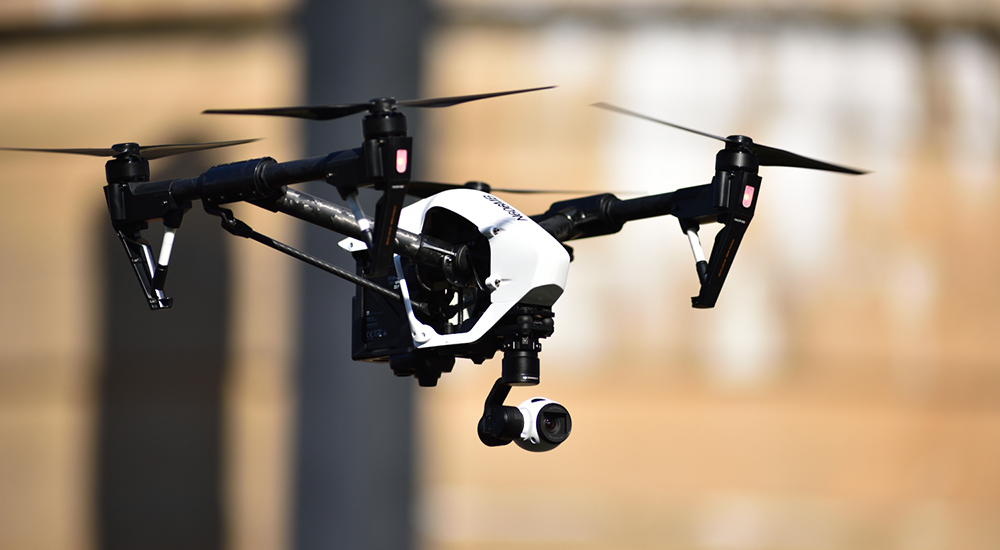Discover how Michael Baker is using LiDAR to develop new data-rich structural asset management opportunities
From the Fall 2016 issue of Signature
When a large client with many building assets asked Michael Baker to help survey many of its regional office facilities as part of an Americans with Disabilities Act compliance assessment, the firm’s engineers and surveyors didn’t approach the project with traditional tripods and transits. They went in with their LiDAR equipment spinning, blazing and recording.
The result: Terabytes of three-dimensional data of buildings and grounds, including detailed photos, supported by a color-rendered point cloud made up of billions of meaningful geospatial data points. The client ultimately received the information it needed, as well as a huge amount of additional data that could be used later for a variety of other asset management analyses.
LiDAR, which stands for light detection and ranging, automatically collects geospatial information technology (GIT)-based data as the device spins 360 degrees and uses laser technology to record more than a million topographical data points per second, while also taking thousands of photographs.
Michael Baker uses “static” LiDAR for measuring buildings and other structural assets. The company has the ability to mount “mobile” versions of the device on vans, boats, all-terrain vehicles and unmanned aerial systems to: Document critical road, airfield and bridge conditions; map large tracts of land; and monitor widespread assets such as oil and gas pipelines, utility poles and traffic signals for clients around the world.
“I’m in awe of the size of data, the clarity of the data, and what we can extract from that data,” says Mark Anderson, a LiDAR processing manager at the firm’s Pittsburgh office. “It’s a huge amount of data. The sky’s the limit.”
Michael Baker has propelled its traditional surveying business boldly into the big-data age, thanks to a growing GIT-based practice supported by LiDAR, unmanned aerial systems and its own proprietary mobile-app data platform, which has been adapted for a diversity of applications.
The firm now collects more than a petabyte (one million gigabytes) of raw, engineering-quality data annually for analysis, according to Robert Hanson, chief scientist at Michael Baker.
“With our mobile LiDAR capabilities, a single vehicle has the potential to record billions of LiDAR shots, take tens of millions of photographs, and generate hundreds of thousands of individual LiDAR-based files in a relatively short time period in the process of creating deliverables for a typical project,” Hanson says. “We then analyze the aggregation of billions of LiDAR points within a dataset to determine any phenomena and their relevancy to an intended purpose.”
“Typical projects” for Michael Baker, though, have expanded well beyond land and road surveys to include assisting client partners with the comprehensive management of assets such as buildings, bridges and even traffic signals at intersections.
“Now we’re developing methods and algorithms that interact directly with these point clouds to perform conformity analysis with design standards and to analyze stress and perhaps load forecasting on infrastructure,” Hanson explains. “This is the way we can extend the potential for that infrastructure through effective operation and maintenance practices, as well as predict the infrastructure’s ability to bear existing or additional demand loads.”
The data continues to grow exponentially as the company’s LiDAR practice expands across the firm’s full continuum of engineering markets and practices, from transportation, aviation and utilities to land development, oil and gas, and facilities management, among others. The challenge ahead, he says, is to leverage the raw data to solve new and even more complex client challenges.
The technology’s big-data potential and Michael Baker’s efforts to explore such opportunities, Hanson says, are boundless. “We’re creating new and dynamic LiDAR solutions within entirely new professional and commercial markets. It’s exciting to ponder what the future looks like.”


